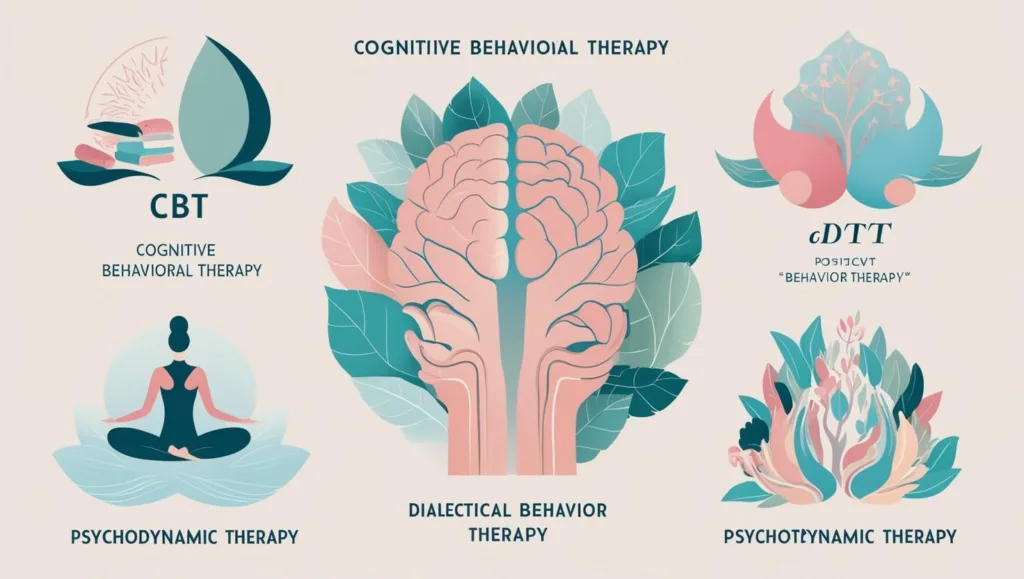In the landscape of mental health and social services, two professions often find themselves compared and sometimes confused: social workers and psychotherapists. While both play crucial roles in supporting individuals through challenges, their approaches, training, and focus areas differ significantly.
This comprehensive exploration will illuminate the distinctions between these vital helping professions, clarifying when each might be most appropriate for different needs and situations.
Social Worker vs Psychotherapist
Let’s begin by exploring how social workers and psychotherapists fundamentally differ in what they cater to.
Core Philosophy and Approach
At its heart, social work operates from a “person-in-environment” perspective, recognizing that individuals exist within complex social systems that significantly impact their well-being. Social workers consider factors like family dynamics, economic circumstances, community resources, and cultural influences when addressing client needs.
A psychotherapist, however, typically works from a more clinical perspective, focusing on internal psychological processes, emotional patterns, and behavioral responses. While modern psychotherapists certainly consider social factors, their primary emphasis remains on the individual’s internal landscape rather than external systems. This difference represents one of the most fundamental distinctions between a psychotherapist vs social worker approach.
Education and Qualifications
Academic Requirements for Social Workers Most practicing social workers hold at least a Bachelor’s Degree in Social Work (BSW), though many positions—particularly clinical roles—require a Master’s Degree in Social Work (MSW). These programs emphasize coursework in human behavior, social welfare policy, ethics, and diverse intervention methods.
Social work education includes substantial fieldwork components, with students completing hundreds of supervised practice hours before graduation. This ensures graduates have practical experience addressing real-world challenges across various settings.
Training Requirements for Psychotherapists
Psychotherapists typically come from backgrounds in psychology, psychiatry, counseling, or related fields. Most hold advanced degrees—either a Master’s or Doctoral level—with specific training in therapeutic techniques and psychological theory.
A distinguishing feature in the therapist vs psychotherapist comparison is the depth of clinical training. Psychotherapists undergo extensive supervised clinical practice focusing on therapeutic techniques and psychological assessment. Their training emphasizes understanding psychological disorders and evidence-based treatment approaches in greater depth than general counseling programs.
Licensing and Certification Differences
Both professions require licensing, but the requirements and titles vary significantly by location. Social workers typically pursue licensures such as Licensed Clinical Social Workers (LCSW) or similar designations, which permit them to provide therapeutic services in many jurisdictions.
Psychotherapists may hold various licenses depending on their background—Licensed Professional Counselor (LPC), Licensed Marriage and Family Therapist (LMFT), Licensed Clinical Psychologist, or Psychiatrist (MD with psychiatric specialization). Each credential reflects different training emphases and practice permissions, creating significant variation within the psychotherapist category itself.
Scope of Practice and Professional Focus
Social workers take a comprehensive, client-centered approach to addressing individual and societal challenges
The Social Worker’s Holistic Approach
Beyond addressing mental health concerns, they help clients navigate complex systems, access resources, and address practical challenges that affect well-being. A social worker might help a client find housing, apply for benefits, navigate legal issues, coordinate care services, or access community resources—all while providing emotional support.
The Psychotherapist’s Clinical Emphasis
Psychotherapists typically maintain a more specialized focus on psychological assessment, diagnosis, and treatment. Their primary tools include various therapeutic techniques designed to address specific mental health concerns, emotional difficulties, or behavioral patterns. A psychotherapist might spend sessions exploring thought patterns, processing emotions, developing coping strategies, or working through past traumas.
This clinical specialization represents a key difference between social worker and psychotherapist roles.
Treatment Methods and Intervention Strategies
Social Work Intervention Models
Social workers employ diverse intervention approaches that reflect their profession’s holistic orientation. Common models include:
- Strengths-based practice: Focusing on client capabilities rather than deficits
- Case management: Coordinating multiple services to meet complex needs
- Crisis intervention: Providing immediate support during emergencies
- Community organizing: Addressing broader systemic issues affecting clients
- Brief solution-focused therapy: Working on specific, achievable goals
Social workers often adapt these approaches based on the specific needs of individuals, families, or communities they serve, maintaining flexibility to address both psychological and practical concerns.
Psychotherapeutic Techniques and Modalities
Psychotherapists typically specialize in specific therapeutic modalities with deeper theoretical foundations. Common approaches include:

- Cognitive-Behavioral Therapy (CBT): Addressing thought patterns and behaviors
- Psychodynamic therapy: Exploring unconscious processes and past influences
- Dialectical Behavior Therapy (DBT): Developing emotional regulation and interpersonal skills
- EMDR: Processing traumatic memories through specialized protocols
- Psychoanalysis: Deeply examining unconscious patterns over extended periods
While some social workers may utilize these approaches, psychotherapists generally receive more extensive training in specific modalities and often develop expertise in particular therapeutic techniques.
Working Environments and Professional Settings
Where Social Workers Typically Practice
Social workers function across incredibly diverse settings, reflecting their profession’s broad scope:
- Healthcare systems: Hospitals, rehabilitation centers, hospice care
- Government agencies: Child Welfare, public assistance programs, corrections
- Educational institutions: Schools, universities, early intervention programs
- Community organizations: Homeless shelters, domestic violence agencies, senior centers
- Mental health clinics: Outpatient services, day treatment programs
This variety allows social workers to address needs across the lifespan and in virtually any context where people face challenges. Their presence in these diverse settings highlights their focus on meeting clients “where they are” both figuratively and literally.
Common Settings for Psychotherapists
Psychotherapists typically work in more clinical environments focused specifically on mental health treatment:
- Private practice: Individual or group practices offering specialized services
- Mental health clinics: Outpatient therapy centers
- Psychiatric hospitals: Inpatient and intensive outpatient programs
- University counseling centers: Providing services to student populations
- Specialized treatment centers: Addiction recovery, eating disorder programs
While there is some overlap with social work settings, psychotherapists generally practice in environments specifically designed for psychological treatment rather than broader social service delivery. This difference reflects the distinctive focus of each profession.
Key Distinctions between Social Workers and Psychotherapists
| Aspect | Social Worker | Psychotherapist |
| Primary Focus | Holistic well-being including practical needs | Psychological and emotional functioning |
| Approach | Person-in-environment perspective | Individual psychological processes |
| Education | BSW or MSW degree | Master’s or Doctoral degree in psychology or related field |
| Common Duties | Case management, resource connection, advocacy, counseling | Assessment, diagnosis, therapeutic intervention |
| Settings | Hospitals, schools, community agencies, government services | Private practice, clinics, specialized treatment centers |
| Theoretical Foundation | Social systems theory, ecological perspective | Psychological theories, therapeutic modalities |
| Treatment Length | Often shorter-term, goal-oriented | May be longer-term, process-oriented |
Collaboration Between Social Workers and Psychotherapists
Despite their differences, social workers and psychotherapists often work together as part of interdisciplinary teams, each contributing their unique expertise. This collaboration creates a more comprehensive approach to client care than either profession could provide alone.
For example, a psychotherapist might provide specialized trauma therapy while a social worker ensures the client has stable housing, legal support, and community connections. This partnership addresses both the psychological aspects of recovery and the practical concerns that might otherwise undermine treatment progress.
Social Worker or Psychotherapist? Whom Should I Choose?
When to Seek a Social Worker
Social workers may be particularly appropriate when:
- You’re facing practical challenges alongside emotional concerns
- You need assistance navigating complex systems (healthcare, legal, educational)
- Your situation involves family dynamics or community factors
- You could benefit from case management and resource coordination
- Affordability is a significant concern (social services often offer sliding scales)
Social workers excel at addressing the broader context of challenges, making them valuable resources for those facing multifaceted difficulties requiring both emotional support and practical assistance.
When to Consult a Psychotherapist
A psychotherapist might be the better choice when:
- You’re seeking in-depth work on specific psychological issues
- Your challenges primarily involve emotional patterns or thought processes
- You’re interested in a particular therapeutic approach (e.g., CBT, EMDR)
- You have complex mental health concerns requiring specialized treatment
- You’re looking for longer-term psychological exploration
The specialized training psychotherapists receive in specific therapeutic techniques makes them particularly well-suited for addressing defined psychological concerns where clinical expertise is the primary need.
Concluding Remark
The distinction between social workers and psychotherapists reflects more than different professional titles—it represents fundamentally different approaches to helping people overcome challenges.
Understanding the difference between social worker and psychotherapist roles helps individuals make informed choices about which professional might best meet their needs. In many cases, both professionals can play valuable roles, either sequentially or simultaneously, in supporting individuals through difficult circumstances.
Meet Ayen Mabor – Your Trusted Partner in Mental Health & Well-being
As a dedicated social worker Ayen Mabor I bring a compassionate, client-centered approach to helping individuals overcome emotional and practical challenges. With extensive experience in both therapeutic interventions and social advocacy, I specialize in empowering clients to regain control, heal, and thrive.
Ready to take the first step towards a healthier, happier you? Contact me today and let’s work together to create meaningful change!



